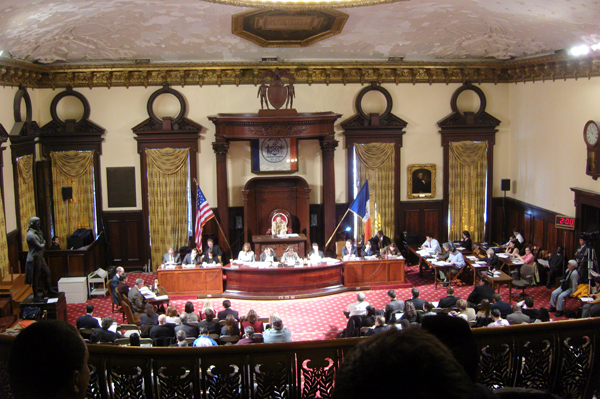
Photo by: Jarrett Murphy
Council reforms could affect three different balances of power: between individual members and the speaker, between the Council and the mayor, and between the city and Albany.
Melissa Mark-Viverito got the City Council’s unanimous support to be its next speaker on Wednesday despite an unusually public and pretty intense weeks-long battle involving her chief rival, Dan Garodnick, the county Democratic chairs, the new mayor, unions, the Council’s Progressive Caucus and an avalanche of bad press for her. Her win is seen as a major coup for Bill de Blasio, who now has a strong ally on the other side of City Hall—maybe even a stronger one than Mike Bloomberg had in Christine Quinn.
But because Mark-Viverito’s ascendance in in tandem with that of the Progressive Caucus, the way power is wielded on the east side of City Hall is subject to change.
Years before her close alliance with Bloomberg was the focus of campaign-trail complaints, Quinn’s use of the speaker’s levers of power drew grumbling from other Council members. The ruthless use of discretionary funds (the money members are allowed to dole out in their districts) and leadership positions to reward supporters and punish dissenters, the refusal to bring measures with overwhelming support up for Council votes, the blocking of mere hearings for bills she didn’t like—even her control of the lawyers who turned policy ideas into legislative language for Council members—were seen as anti-democratic. And the same was said of previous Council leaders.
Thus, one of the many planks of the Progressive Caucus’s agenda calls to scale back at least some of those speaker powers. If the Caucus makes good on these reforms, Mark-Viverito will still have plenty of authority. But keeping the Council in line behind the mayor’s agenda, or her own, or some combination of the two, will be harder for her than it was for Quinn or her predecessors.
Read more here








